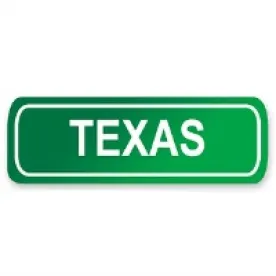Effective September 1, 2021, any employer that employs “one or more employees” or that “acts directly in the interests of an employer in relation to an employee” will be considered an employer under Texas law and subject to a heightened level of scrutiny for sexual harassment claims under Texas law. The new law is a significant change from the current standard, which shields employers with fewer than 15 employees from liability regarding sexual harassment claims.
Senate Bill 45: Expanded Definition of “Employer”
Under Senate Bill 45, which Governor Greg Abbott signed on May 30, 2021, the Texas legislature added Section 21.141 to the Labor Code, and now state law defines an “employer” as “a person who: (A) employs one or more employees; or (B) acts directly in the interests of an employer in relation to an employee.” As a result of the expansion of the definition of employer to include those who act “directly in the interests of an employer in relation to an employee” give rise to supervisors, coworkers, or other individuals associated with employers may be named as individual defendants in complaints of sexual harassment. The expansion of the definition of an “employer” will likely lead to an increased number of claims and suits against employers.
Senate Bill 45: Heightened Standard for Employers’ Responses
Section 21.141 provides that an “unlawful employment practice” occurs if there is sexual harassment of an employee “and the employer or employer’s agents or supervisors: (1) know or should have known that the conduct constituting sexual harassment was occurring; and (2) fail to take immediate and appropriate corrective action.” [Emphasis added.] The heightened standard of “immediate and appropriate corrective action” may become the most litigated and disputed component of the law moving forward between employers and employees who bring claims of sexual harassment. This heightened standard will inevitably lead to fights over temporal connections between the date of the alleged sexual harassment, the timing of employer responses, and the sufficiency of employer investigations once the harassment becomes known by the employer.
House Bill 21: New Statute of Limitations
House Bill 21, which Governor Abbott signed on June 9, 2021, amended Section 21.201(g) of the Labor Code to expand the statute of limitations for making claims of sexual harassment from 180 days to 300 days from the date of the alleged sexual harassment. The additional time for filing claims provided by this amendment, which is also effective September 1, 2021, applies to sexual harassment claims only and does not affect the 180-day requirement for filing other discrimination claims.
Key Takeaways
These changes may lead to more claims and uncertainty as to what corrective actions courts may regard as “immediate and appropriate” when analyzing the standards in the sexual harassment context. The expanded time limitation to 300 days employees have for bringing claims of sexual harassment will also require heightened investigations and record keeping for employers looking to ensure they are not caught by surprise when a claim is brought forward by employees. Employers may want to use the expanded time for the filing of potential lawsuits to conduct thorough investigations into sexual harassment claims and document and maintain records of the investigations.




 />i
/>i
